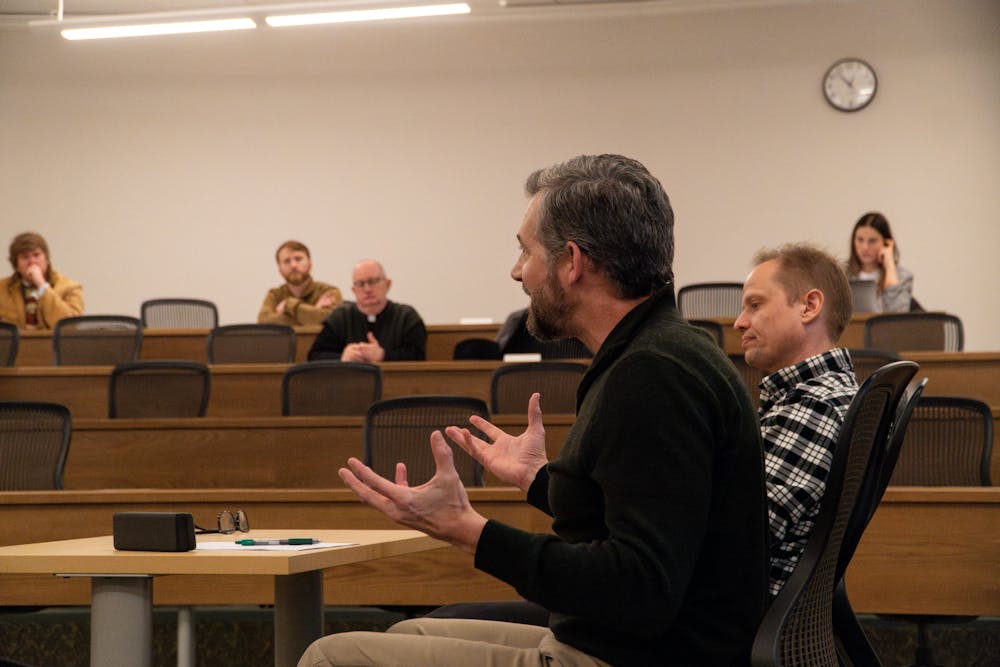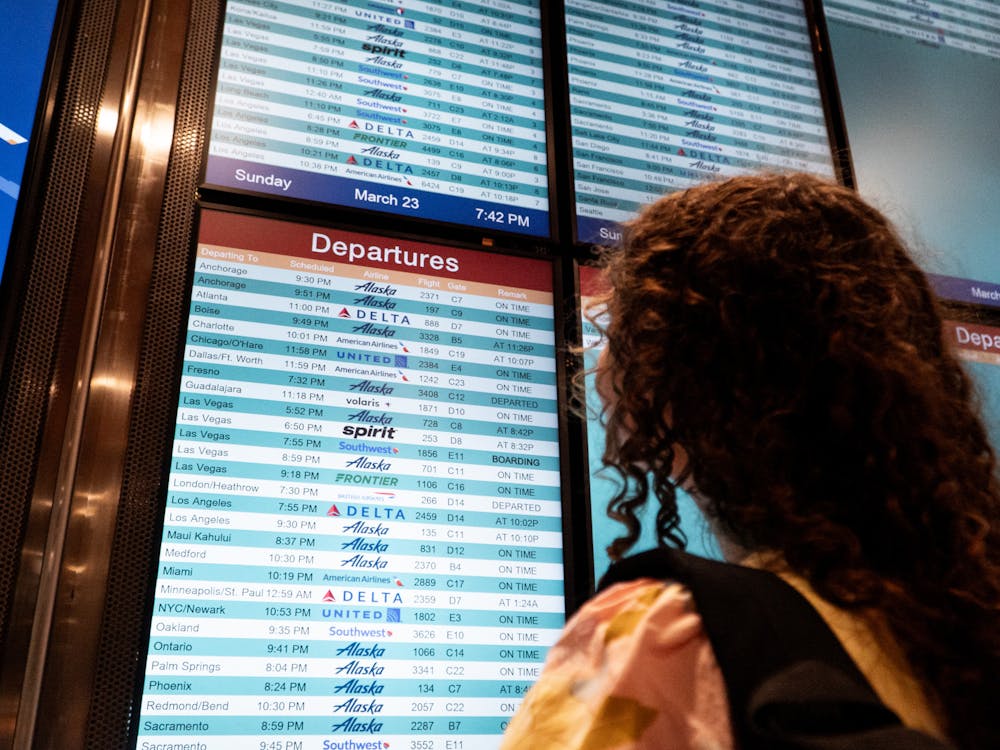Political science professors Bill Curtis and Jeffrey Meiser held a Q&A session on Wednesday, drawing over 20 UP community members — many of them faculty — to the basement of Dundon-Berchtold to unpack the Trump administration’s recent flurry of executive orders.
Since he took office on Jan. 20, Trump has signed over 50 executive orders, including freezing diversity, equity and inclusion (DEI) funding and initiatives, attempting to end birthright citizenship and weakening Title IX protections for transgender athletes.
According to Curtis and Meiser, although the impacts of many of the executive orders remain to be seen due to ongoing lawsuits challenging the administration’s actions, there are several resources people can use to stay informed.
For students like senior Tait Vigeland, who expressed confusion about how to keep up with the rapidly changing orders, Meiser suggests reading a substack on executive orders, visiting the National Constitution Center and listening to podcasts — like Advisory Opinions and Lawfare — to better understand how the orders are playing out amid ongoing litigation.
“I think the important point is to try and base things in fact as best we know them,” Meiser said. “It’s so uncertain, and so just talking through, ‘What do we know right now? What's happening?’ I think that bases things in reality, and that helps.”
Some attendees also expressed fear that Trump’s orders are an overreach of executive power.
However, Curtis, who directs UP’s constitutional studies minor, believes that, depending on the issue, the judicial branch may prove to be a crucial check on executive overreach.
“I know that there are people who believe that this Supreme Court is simply Trump's court, [that] they’re going to do what he wants them to do,” Curtis said. “I actually don't think that's true…That's not necessarily comforting for a student who's worried about the president doing something unconstitutional. But for the moment, I'm trusting the courts.”
Those concerned with the legality of Trump’s orders can track the progress of litigation on Just Security, a website tracking ongoing lawsuits that are challenging the Trump administration’s actions.

Meiser believes that the number of lawsuits will increase with time as more of Trump’s orders are questioned.
“So [what] we're seeing now is only three weeks,” Meiser said. “And so we had the presidential team coming in with all this, obviously 53-odd orders that were already written out and ready to go, but everyone else is responding to it. They're all reacting. And so as we go along, you'll see this page will fill up with hundreds and hundreds of pieces of litigation as we go through over time… the whole administration will be tied up in this massive legal morass.”
Overall, students were optimistic about the event. Beyond being educational, senior political science major Sofia Davidson thinks the Q&A helps students feel more confident to have conversations about Trump’s executive orders.
“I guess I feel like no matter what side you're on, you should be able to talk about issues that are very pressing in today's world,” Davidson said. “I feel like a lot of people who aren't in politics don't really feel like they can talk about it. And I feel like hopefully this experience can make them feel comfortable, and make them feel like they can understand what's going on in the world without feeling like they don't know what they're talking about.”
Likewise, Vigeland hoped that the event would help get students on the same page, opening space for students to have more productive discussions.
An audio recording of the full Q&A will soon be available on the Dundon-Berchtold Institute website.
For students looking to explore more about the orders’ effects, VoteUP is sponsoring three events, on Feb.17, March 17 and April 14 from 10 a.m. to 2 p.m. at the Pilot House, for students to write to elected officials. They’ll be able to write about the impact the orders have had on them and anything else they think is important for their representatives to know.
In addition, Constructive Dialogues and the Diversity and Inclusion Programs are still hosting “Lunchtime Insights,” where students can meet on Tuesdays from 12:30 p.m. to 1:30 p.m. in the Diversity Center to discuss current events.
Riley Martinez is the Copy and Opinions editor for The Beacon. He can be reached at martinri24@up.edu.









